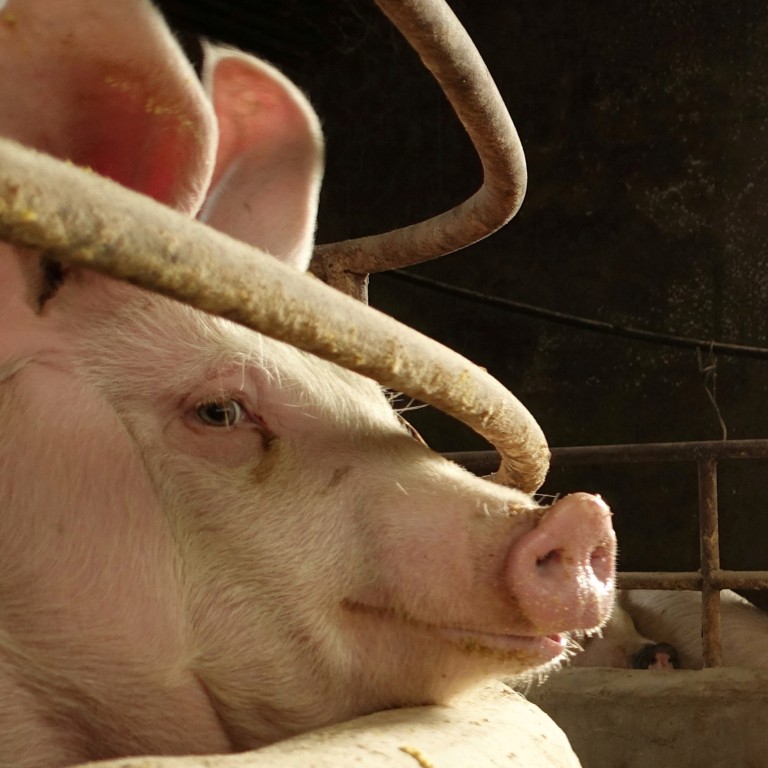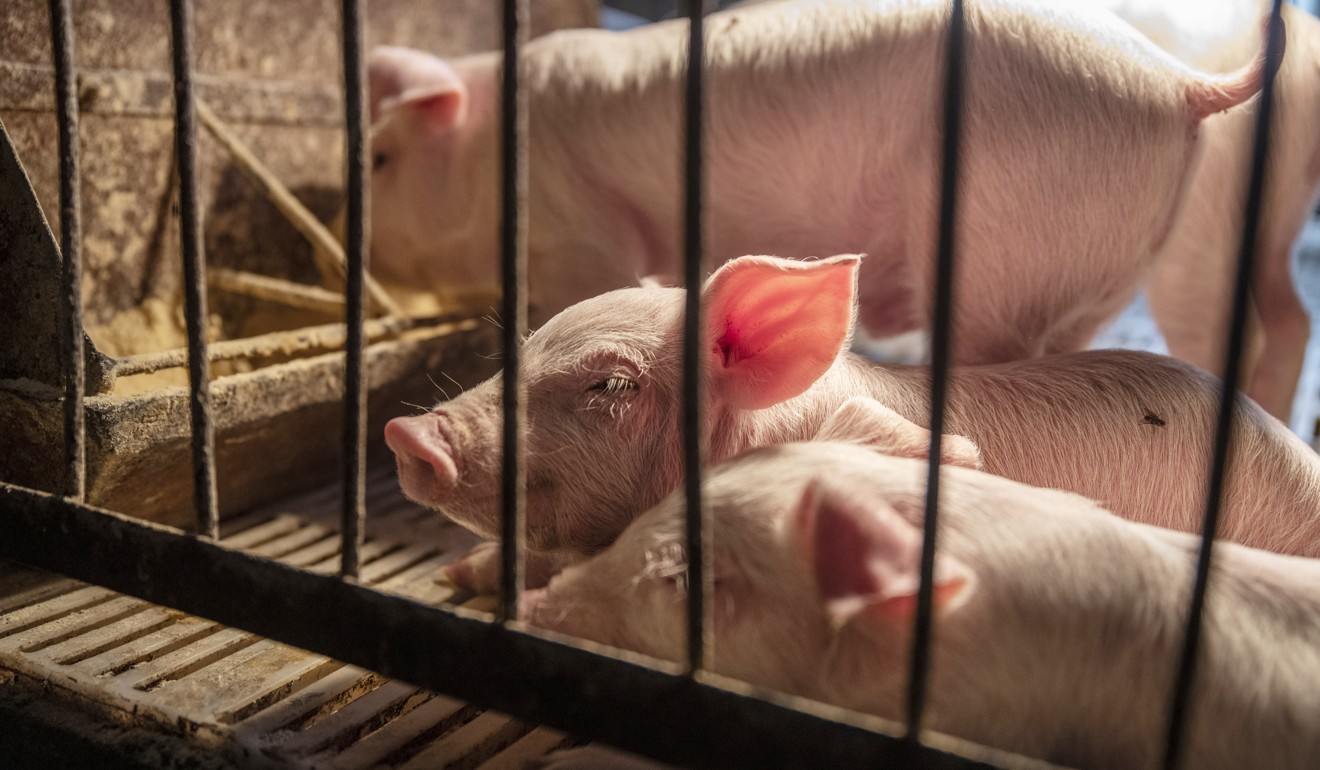
Hong Kong confirms first case of African swine fever – and orders cull of 6,000 pigs at Sheung Shui Slaughterhouse
- Pig imported from Guangdong province was first to test positive for disease
- Fever poses no human risk, but continues to devastate pork industry
Hong Kong confirmed its first case of African swine fever on Friday and ordered the cull of at least 6,000 pigs at a government-owned slaughterhouse.
“In order to minimise the risks of the African swine fever virus spreading from the slaughterhouse. All pigs in Sheung Shui Slaughterhouse will be culled so that thorough cleansing and disinfection could be conducted,” Chan said.
She said the abattoir would suspend operations until the disinfection was completed. Chan said she expected the city’s supply of fresh pork to be reduced in the near future. Tsuen Wan Slaughterhouse was not affected by the virus, she added, so a limited supply would still be available.
Health authorities said the infected pig was imported from Zhanjiang, Guangdong province.
Dr Kenny Ho Chin-ho, a city agriculture official, said the pig showed no symptoms of the fever before it was slaughtered for consumption. A routine test on an organ sample, which was collected on May 2 but only tested on Friday, detected the virus.
Centre for Food Safety chief Dr Philip Ho Yuk-yin said the authorities had yet to discover where the pig had contracted the virus and when it reached Sheung Shui Slaughterhouse.
Hong Kong pigs ‘should be slaughtered separately from mainland livestock’
Ho said the batch that included the sick pig had already been released to the market.
Sheung Shui Slaughterhouse is owned by the Hong Kong government and supplies 80 per cent of pork to the city.

African swine fever poses no food safety risk to people. The health minister said on Friday that thoroughly cooked pork and pork products were safe for consumption.
The virus is spread among swine by live or dead pigs and pork products. There is no approved vaccine for swine fever.
The World Organisation for Animal Health has classified African swine fever is a highly contagious haemorrhagic viral disease of domestic and wild pigs.
There are 43 pig farms in Hong Kong, with about 50,000 pigs. Between 3,500 and 4,000 live pigs are imported from the mainland to Hong Kong each day and slaughtered for consumption. Another 250 pigs from local farms are also slaughtered every day in the city.
In December, the city introduced new safety measures in response to the virus’ spread across mainland China, including stricter rules on culling livestock and a consideration of faster turnover at the government-run slaughterhouse.


